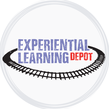|
Experiential learning resources for the innovative educator
If you were to ask me, "How can I make my high school summer school class fun, engaging, and personally meaningful?" (and not just for the kids), I would say to make personalized, self-directed project-based learning the foundation of your high school summer school class! Why? Let's take a look.
It doesn't matter what subject you teach, whether you're a classroom teacher or a home educator, or whether you're a rural or urban educator. My answer would be the same across the board. No question. Run a project-based summer school for your highschoolers.
In my experience, which is 14 years in high school education, students are engaged when learning is personal. Personalized project-based learning takes students' interests, strengths, challenges, goals, and more into consideration when planning learning experiences over the course of a session. In other words, it is customized learning; interest-led and self-directed. This concept is easily captured with project-based learning. I have tried a variety of teaching approaches, and find PBL to be best suited for my high school students, especially during the summer months! Each student designs, develops, and leads their own project-based learning experiences.
But why take the project-based summer school route with your high school class? In short, because students are engaged, it's fun, they develop content knowledge across disciplines, and gain essential 21st-century skills in the process.
The biggest bonus? It's also fun for you. Let's get into some specifics. This post outlines the reasons for a self-directed project-based summer school class in a way that will make it easy to pitch the concept to whoever needs convincing (your director, partner, or parents, for example). 10 Benefits of a Project-Based Summer School for Highschoolers
Let's get started! Why develop a self-directed project-based summer school class or program for high school students? Run through this list of benefits and then tell me you aren't jumping out of your seat to get started planning right now!
1. A Project-Based Summer School Engages Learners
Project-based learning, when self-directed, is highly engaging because students drive the experiences based on personal interests, skills, strengths, challenges, community connections, and more.
Students choose the topic (or subtopic around an assigned theme or set of standards) based on interests and personal relevance. Students choose how they will demonstrate learning, using their skills and aspirations to drive their final product choice. Students design their PBLs by making a series of choices all based on who they are as unique individuals. Every project and all outcomes vary between students for this reason. This ownership of learning promotes personal investment and the desire to learn. Students take interest in the experience, and, therefore, the content that comes along with it.
2. A Project-Based Summer School Class Results in Deeper Learning
A project-based summer school class or program offers authentic, real-world, relevant, and place-based learning experiences.
Students study meaningful topics, those that students can connect with on an authentic level, and, therefore, the content is understood and retained on a deeper level than it would be from a lecture, textbook reading, or worksheet.
3. A Project-Based Summer School Class Crosses Disciplines
I love a project-based summer school program for many reasons, but the fact that PBL is cross-disciplinary is high up on my list of reasons to make summer school programs (or any other program) project-based. Project-based learning, student- and teacher-directed, brings in a variety of subjects and skills.
Let's look at an example: A student might choose predator/prey relationships as the focus of their PBL experience (life science). The student connects with an ecologist who is studying local predator/prey relationships (field ecology), learns about GPS tagging and telemetry to track the movement and migration of local populations (geography and technology), conducts a point count with their expert (math), and their final product is a map of the predator/prey demographics using ArcGIS (math, geography, tech). You get the picture. Students can design their projects around specific required standards, gain a deep understanding of those concepts through authentic learning, and acquire a variety of other skills and knowledge in the process. In life, learning doesn't happen in discrete units. It's a great idea to prepare students for that now.
4. A Project-Based Summer School Class Builds Character
Character building is such an important benefit of a project-based summer school class, especially for teenagers. Because project-based learning is authentic and community-based, students are immersed in character-building opportunities such as integrity, empathy, compassion, and more.
On top of that, PBL promotes the development of a healthy self-concept. Students analyze their priorities, desires, values, and more because of exposure to the world around them.
5. A Project-Based Summer School Class Promotes 21st-Century Skill-Building
Teaching 21st-century skills is a must for 21st-century learners. Employers look for an understanding of the concepts involved in the industry, but these days, they also require soft skills such as problem-solving, critical thinking, collaboration, organization, communication, decision-making, responsible citizenship skills, and more.
Project-based learning, especially when self-directed, naturally presents opportunities to gain these 21st-century competencies and more. Check out the following project resources that specifically target 21st C. skill-building:
6. A Project-Based Summer School Class Instills a Passion for Learning
What's not to love about helping students develop a passion for learning?
A love for learning is similar to the "engagement" piece, but I'm also referring to a lifelong passion for learning. Because self-directed project-based learning is authentic and gives students choice, students develop not only an intrinsic motivation to learn, but the desire and excitement to learn. Project-based learning also gives students the skills to find information, promoting lifelong learning. Students know how to learn so can take on anything long after they have left my class or graduated high school. Instilling this love for learning during the summer inspires students to more deeply engage in learning when they return to school in the fall.
7. A Project-Based Summer School Class Encourages Relationship-Building
Self-directed project-based learning promotes relationship building on so many levels because it is so collaborative. I become very close with my students because the learning experience is personalized, and even more so in the summer when class sizes are smaller and more intimate.
In order for me to guide students in the process of designing and leading their own project-based learning experiences, I need to get to know who they are as individuals. Students also get to know themselves through PBL and use that insight to make informed and guided decisions about their own learning journeys. Project-based learning is also community-based and highly collaborative, so students build relationships and network with community members. Finally, students build relationships with each other. Peer relationship-building is especially pertinent for summer school program students because they are in their own little cohort having these pretty profound and meaningful experiences together.
8. A Project-Based Summer School Class Promotes Personal Successes
I am not an educational theorist. I am not in research. I am a self-directed project-based learning teacher; a practitioner that has experienced and observed the outcomes of self-directed PBL firsthand, and those outcomes are powerful.
Watching students succeed and observing how much they gain academically and personally is enough of a reason for me to have a project-based summer school class or program. I have been doing PBL for 14 years, and if I didn't think it was an effective learning strategy, I wouldn't continue with it. Self-directed PBL is not only an effective learning tool, it literally changes lives, and summer is a great time to give them that boost they need.
9. A Project-Based Summer School Class Makes Your Job Fun and Uplifting
It can be a challenge for teachers to sign on for a summer school program or session. It is time-consuming, limits your opportunity for self-care before the next school year begins, and is often not very exciting.
Your students likely don't want to be there either, which makes it even harder to want to be a part of it. BUT, self-directed project-based learning made summer school enjoyable for me. I sign on for summer school every single year because I love it. I love walking into work every day imagining what my students would teach me that day.
10. A Project-Based Summer School Class Can Be Your Practice Round for A Project-Based School Year
Okay, I know your summer school students shouldn't be treated like guinea pigs, BUT, your summer school class could be a great opportunity to introduce project-based learning into your curriculum or make it your curriculum.
Use your project-based summer school as practice for the upcoming school year. Maybe you've always wanted to try project-based learning but when the school year starts it gets away from you. Summer school can be your practice round. Try it this summer, learn from the experience, and apply lessons learned when you launch project-based learning in your classroom or homeschool this fall. And an added bonus? One tip I give to beginner project-based teachers is for them to pick students out from the class that have a knack for PBL and ask them to mentor the other students that are struggling to catch on. Your summer school class students could be those mentors for the upcoming year!
A project-based summer school class or session is a great way to make summer learning fun and engaging while helping you develop the tools to continue on with project-based learning this fall and for years to come.
If you have any questions, please email me anytime! I also encourage you to check out the following project-based resources to help you launch your project-based summer school program with ease so that you and your students can enjoy the experience rather than feel overwhelmed by it.
Resources for Your Project-Based Summer School Class:
Helpful Blog Posts:
Follow Experiential Learning Depot on Pinterest, Facebook, Youtube, and Instagram for more on experiential education, and check out my TpT store for experiential learning resources.
Did you know there is an experiential learning Facebook group? Check that out - Experiential Learning Community for K12 Teachers - and join in the discussion about experiential learning ideas such as citizen science. Observe. Question. Explore. Share.
0 Comments
Your comment will be posted after it is approved.
Leave a Reply. |
Blog IntentTo provide innovative educational resources for educators, parents, and students, that go beyond lecture and worksheets. AuthorSara Segar, experiential life-science educator and advisor, curriculum writer, and mother of two. Categories
All
|
















 RSS Feed
RSS Feed